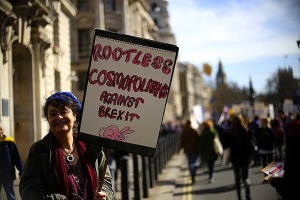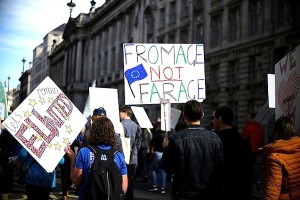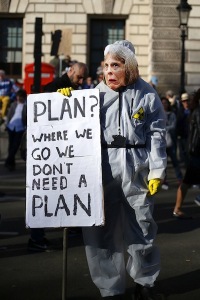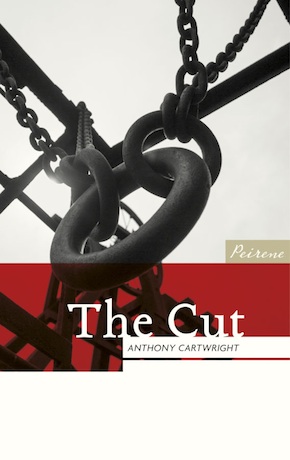Sun on grey water
by Mika Provata-CarloneThere is no time or place in human history without a crisis (not even the Garden of Eden of Adam and Eve). Whether in the form of socio-political or cultural earthquakes of greater or lesser magnitude, or as underlying tensions, festering wounds or unquietened, maddening murmurs, crises are at the heart of the very act and experience of being human. Our own time, therefore, is not unique in its state of suspension, judgement (the original meaning of the word crisis), apprehension, imminent disintegration, or the unthinkable reversal of the known and much of the unknown. What perhaps distinguishes our crisis from those which have preceded it, and possibly have led to it, is its ever-growing complexity of layers, the tangentiality of our sense of the real, the elusiveness and flux of our multiple, contradictory or complementary realities. We live in a time that is here and now or not there at all, in a world that has substance or none at all, a society that has memory or only nostalgia and forgetting.
The Cut by Anthony Cartwright is a startling short novel aiming to address all that is covered by the chameleonic phenomenon of Brexit, the umbrella of all crises at the epicentre of current British life. It is startling because of its anti-crisis style, its hypnotic serenity, its languid, even when doleful, contemplation of dire paralysis, despair, lost opportunities and impossible new beginnings, while never losing an ounce of its verve and pain, its sting and human tragedy, its irresistible humanity. The 1950s and 1960s had their generation of Angry Young Men (or the ‘Angries’ for jest or for short), young voices such as John Osborne or Kingsley Amis, Edward Bond, Arnold Wesker, Harold Pinter, Wole Soyinka or John Arden. They had their supreme horror-shock narrative, Anthony Burgess’ Clockwork Orange, blasting earthquake and yowling hiss all in one. Between that moment of anger against the dispossession of history, individuality, opportunity and belonging, against class divisions and worlds of double vision, and our very own Brexit, what has transpired is perhaps the greatest illusionist trick of all times. Our modernity conceals and presupposes parallel worlds of infinite regression and stagnation, a flip side that serves as the backdrop of a different kind of ‘kitchen sink’ drama and realism, a brutally real virtual actuality that allows us to ponder and examine, analyse and protest, without ever looking to see or reaching out to touch, reflect and understand. In many ways, we seem to have leapt into our future bereft of legs on which to land – or even wobble.
This is a relentlessly gripping tale, suffused with a pleading humanity that will never let go… elegiac and wistful, a ballad full of greyness, tears and what-ifs.”
 The Cut was commissioned especially by Meike Ziervogel of Peirene Press in an effort to give voice to the crisis, a voice that can be heard, even if it might not perhaps be listened to. To say that it is a deeply poignant human story, a plot of particular complexity and richness, would be an understatement. This is a relentlessly gripping tale, suffused with a pleading humanity that will never let go, not even after the last, haunting page. It is elegiac and wistful, a ballad full of greyness, tears and what-ifs. Cartwright returns to his familiar turf of the Black Country with gentleness and ruthless sincerity. He is razor-sharp in his social commentary regarding unemployment (and unemployability), the new bling of consumerism against old poverty and the breakdown of urban spaces, the sterility of relationships even as the yearning for attachment becomes stiflingly pressing and pervasive. People in his past four novels have perhaps looked very similar to the characters in The Cut: working class let-downs and new-moneyed scoundrels, mothers and fathers who live in the twilight of very different worlds, a younger drifting, fuzzed generation struggling with words and meaning, aims and existence. The Cut however is unlike Cartwright’s other writing, and quite possibly as distinct from other novels with similar thematic interests.
The Cut was commissioned especially by Meike Ziervogel of Peirene Press in an effort to give voice to the crisis, a voice that can be heard, even if it might not perhaps be listened to. To say that it is a deeply poignant human story, a plot of particular complexity and richness, would be an understatement. This is a relentlessly gripping tale, suffused with a pleading humanity that will never let go, not even after the last, haunting page. It is elegiac and wistful, a ballad full of greyness, tears and what-ifs. Cartwright returns to his familiar turf of the Black Country with gentleness and ruthless sincerity. He is razor-sharp in his social commentary regarding unemployment (and unemployability), the new bling of consumerism against old poverty and the breakdown of urban spaces, the sterility of relationships even as the yearning for attachment becomes stiflingly pressing and pervasive. People in his past four novels have perhaps looked very similar to the characters in The Cut: working class let-downs and new-moneyed scoundrels, mothers and fathers who live in the twilight of very different worlds, a younger drifting, fuzzed generation struggling with words and meaning, aims and existence. The Cut however is unlike Cartwright’s other writing, and quite possibly as distinct from other novels with similar thematic interests.
Like Brexit, The Cut is a suspense story of blunted edges and piercing effect. In the very first pages, Cartwright slashes away our veil of ignorance or unconcern, of blindness or the wilful averting of our gaze: we are hurled head-on into the midst of a horrific scene, a woman running ablaze while the ‘people’ follow in a trance of witnessing, phone-recording, camera-filming. We are pinned to the ground and forced to stare at the shocking serenity of the numbed onlookers, at a paralysing society where breaking-news voyeurism has replaced empathy and common sense. The episode ends with a trailing adage, “to begin, the day, his life, to begin.” It also contains all the elements of the novel as though in the form of the darkest black hole: a woman and a man, the tracing and recording of lives, the yearning for beginnings but also for permanence. The man, we are told, “was always a stayer.”
The man, Cairo Jukes, is a local full of picturesque roughness and Brummie accents, a past as a boxer and a present as a failed husband, failed professional, barely surviving odd-jobs man. Behind the stereotype lies a thinker and a dreamer, an amateur chronicler of local history with an old-fashioned working-class father who combines similar pigeonholing and distinct, sharp insight. He is surrounded by a close-knit broken-up family that embodies the traumas, contradictions and impasses of that other England: for them, life seems to have slipped through fingers they do not even possess. The woman, Grace Trevithick, is a maker of documentaries brimming with poetical engagé realism: about forced population movements and refugeedom, shifting borders, changing cultures, barriers and ethnic conflicts. She is the daughter of an academic historian and a New Yorker-reading mother who hailed at some long-forgotten point from the Black Country themselves. She is a graduate of Lady Margaret’s Hall, Oxford, a refined bohemian full of earnest questions, with a few no-longer-rebellious tattoos and as yet few attachments. The people she interviews for her realist dramas “told stories of movement and place and great violence. That she, Grace, found the picture so beautiful, the stillness of the images, the depths of the colours, the incongruity of what the words described when anyone spoke, and that other people felt the same, appals her now, makes her feel ashamed. This is not a feeling she has ever considered before: shame. Like something from a distant century, a forgotten civilisation, something talked about in films of faraway places.”
 Grace will come across Cairo as she fumbles in the dark for some tangible reality and light. She has left the exotic wilderness of Kosovo, Budapest and the like to seek the wildness of post-Thatcherite, millennial Britain. She will have to confront her comfortably gilded stylisation of suffering that gives her a false sense of superiority, magnanimity, and ultimately untouchability. If Cairo is earthy, old-stock British perseverance, Grace is the unreality of a cerebral benevolence and clinical scrutiny. She sees Cairo as “a town, a whole country, of shifting, magical thinking.” The girl from Hampstead Heath sees in Birmingham “prejudice on the scale of a whole country” between “us and them”. She seeks to speak to “real people” and in the process will fall in love with the most untypically real one she will come across.
Grace will come across Cairo as she fumbles in the dark for some tangible reality and light. She has left the exotic wilderness of Kosovo, Budapest and the like to seek the wildness of post-Thatcherite, millennial Britain. She will have to confront her comfortably gilded stylisation of suffering that gives her a false sense of superiority, magnanimity, and ultimately untouchability. If Cairo is earthy, old-stock British perseverance, Grace is the unreality of a cerebral benevolence and clinical scrutiny. She sees Cairo as “a town, a whole country, of shifting, magical thinking.” The girl from Hampstead Heath sees in Birmingham “prejudice on the scale of a whole country” between “us and them”. She seeks to speak to “real people” and in the process will fall in love with the most untypically real one she will come across.
Cairo has average patterns, quirks and stigmas, dysfunctional burdens and behavioural issues, yet he is distinctly unique – or perhaps uniquely isolated. He and his family keep “folders full of family stories, local history”, a more elemental attachment to events, places, the flow of generations than the London-born-and-bred interviewer will ever possess. Like a skewed reflection in a mirror, she will own knowledge of figures, facts, contextual statistics, “news items”, but not their humanity. For Cairo every blackened wall, condemned tunnel, or murky ‘cut’ in Birmingham breathes life, death, an invisible line of meaning, even if that meaning is the most extreme desolation. He is about forty or fifty, in-between the rustic acumen of an older generation and the cruel callousness of the very young who will step on snails sliding away in the rain.
An incongruity of visions and existences, mutual non-acknowledgement and intolerance underlie the Brexit illusion… as well as the more honestly confronted, very locally British crisis in values.”
Cartwright sets up a stage of bleakness and Sisyphus-like attempts at change, regeneration, redefinition, a clean cut and a break. Of people spitting against the wind just as they dream of green hills and running rivers. He gives a strictly paced, non-nostalgic, sober and yet lyrical account of the myth and the reality of slums and the Black Country through the perspective of three generations, fragmented satellite figures and alluring outsiders, packing an awful lot in these 120-odd pages. Brexit is the festering ulcer but also the almost absurd, non-sequitur detail – asked by Grace about UKIP and immigration, Cairo replies that people like her “never considered the problem might be you.” The Brexit question and the vote are, he tells her, an elite game, not the crux of Britain’s problems, and unlike her and those like her, people where he comes from will vote quite simply against what they believe the elite is going to support. This vote will be a protest against the invisibility and muteness they feel to be their world. UKIP activists, in fact, meet at local Indian restaurants. The vote will be irrelevant and useless – as Cairo’s mate Alan says, “Have a look around yer, sunshine, see what good voting does.”
 It is this incongruity of visions and existences, the mutual non-acknowledgement and intolerance between insular parallel worlds, that underlies the Brexit illusion, Cartwright seems to say, as well as the more honestly confronted, very locally British crisis in values, identity, economics, politics – mere humanity. Cairo’s world is tired of being tired, unseen, an unwanted weight over a delusional lightness of being, whereas Grace sees this through the more personal prism of Edward Hopper: “she was becoming a woman in one of those paintings, looking towards the window at nothing in particular. A woman sitting in a pattern of sunlight in a hotel room after a man has gone.” A different type of emptiness, a focus with narrower ramifications, yet, in both cases, the vacuum is what connects, commits and condemns. What inadequate, dreary pattern of life there was before is no longer there and little has come to replace it. It is this suspended state of being and nothingness that was (and is) the Brexit crisis.
It is this incongruity of visions and existences, the mutual non-acknowledgement and intolerance between insular parallel worlds, that underlies the Brexit illusion, Cartwright seems to say, as well as the more honestly confronted, very locally British crisis in values, identity, economics, politics – mere humanity. Cairo’s world is tired of being tired, unseen, an unwanted weight over a delusional lightness of being, whereas Grace sees this through the more personal prism of Edward Hopper: “she was becoming a woman in one of those paintings, looking towards the window at nothing in particular. A woman sitting in a pattern of sunlight in a hotel room after a man has gone.” A different type of emptiness, a focus with narrower ramifications, yet, in both cases, the vacuum is what connects, commits and condemns. What inadequate, dreary pattern of life there was before is no longer there and little has come to replace it. It is this suspended state of being and nothingness that was (and is) the Brexit crisis.
Readers who may find the development unhurried will remind themselves that this is the rhythm and pace of marginal lives, of time and history passing by, of the ineluctable build-up to the mortal climax of existential anguish and despair. There is no spectacle of fireworks, but people’s lives can easily go up in flames in speechless horror. Bubbles of euphoria and clever, abstract insight versus raw emptiness and the human need to hope, hold on, revoke and reverse all ‘Vs’, is what this book is all about, as well as new beginnings sought uncritically, as though one could escape the “Laestrygonians and the Cyclopes” each of us always carries inside.
Anthony Cartwright has written a novel resonant with Toni Harrison’s truths and poignant voices, he has conjured a world that is palpably real and filled with a terrible darkness and reality. He has especially given flesh and blood, words and ideals to a fragile humanity at a loss, in a whirlwind and paralysed by shock. The Cut is a novel about Brexit as an attempt to flee ourselves, the drama of our point in time and the state of our society. At the same time, he has given us a very stark testimonial of the need to break away from realities and delusions that will no longer suffice. No declaration is made either way, no way is shown to be the good or the right path, and it is in this unspoken place of screaming silence that the novel’s direst message and most unforgettable truth is to be found.
 Anthony Cartwright was born in Dudley in 1973. He is the author of four previous novels, most recently Iron Towns (Serpent’s Tail, 2016). His first three novels were all shortlisted for various literary awards, and he has also published a collaborative novel with Gianluca Favetto, Il giorno perduto (The Lost Day), released in Italy in 2015. The Cut is out now in paperback from Peirene Press.
Anthony Cartwright was born in Dudley in 1973. He is the author of four previous novels, most recently Iron Towns (Serpent’s Tail, 2016). His first three novels were all shortlisted for various literary awards, and he has also published a collaborative novel with Gianluca Favetto, Il giorno perduto (The Lost Day), released in Italy in 2015. The Cut is out now in paperback from Peirene Press.
Read more.
Mika Provata-Carlone is an independent scholar, translator, editor and illustrator, and a contributing editor to Bookanista. She has a doctorate from Princeton University and lives and works in London.


